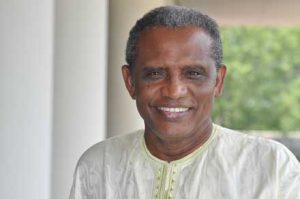
Abdullahi Ahmed An-Na’im, is an internationally recognized scholar of Islam and human rights, and human rights in cross-cultural perspectives and teaches courses in human rights, religion and human rights, Islamic law, and criminal law at Emory University. His research interests also include constitutionalism in Islamic and African countries, and Islam and politics which focus on advocacy strategies for reform through internal cultural transformation. An-Na’im will deliver the 2012 John Peters Humphrey Lecture in Human Rights titled: The Ends and Means of Human Rights: From State-centric to People-centered on Oct. 11 from 5 p.m. at Chancellor Day Hall, Moot Court. For more information go here.
Riots around the recent film “The Innocence of Muslims” are one of many markers of the vitality of fundamentalist forces in Islam, or their ability to mobilise. Are there markers, perhaps less visible but not less significant, that progressive or reformist forces in Islam are succeeding at progressively modernising the mainstream understanding of Islam? Can we really see today evidence of a transcultural dialogue that sustain an engaged internal dialogue within Islam?
Riots attract media attention, but peaceful and productive struggle to ground human rights in local culture are not “news.” Western observers are watching events from their perspectives, expressed by people who speak to Western media in foreign languages. I don’t believe this is the sort of worthwhile and sustainable “modernizing the mainstream” that we should work. For those I call local agents of social change to survive, sometimes physically, and for their work to be sustainable, our work must be at grassroots level, in local languages, away from political manipulation. The absence of a transcultural dialogue is also due to continued imperialist impulse of even international human rights organizations. The people who are making a real difference are “invisible” to Western observers by situation and choice, and I for one prefer it that way. That is why I am calling for a people-centered approach to human rights.
How would you assess the potential of applying a human rights framework to endorse/support women’s equality in Muslim laws?
Two points to make here. First, this is already happening for decades throughout the Muslim world. If one considers the vast majority of Muslims (more than 80 per cent) who live outside the Middle East, North Africa, there is much more than potential. This is clear, for instance, among the second-largest Muslim population in the world, which is in India. Yes, secular democratic India, not Pakistan or Egypt. Second, the idea of so-called “Muslim laws” is a colonial construct which does not reflect the realities of Muslims lives and how they see their relationship to Islam and Sharia.
Drawing on your various writings, you seem to suggest that we need to adopt a more contextual and contingent approach to law and religion. How does this play out, for example, with polygamy, which may be sanctioned by one normative order (but permissible under another (Islam)?
The more contextual and contingent approach we adopt to law and religion, the more sustainable and relevant to the human subjects of that relationship. It is only when we take that view that we are empowered to challenge regressive interpretations of our religion by accepting responsibilities of our lives. If I talk about “Islam” in abstraction, then there is nothing I can do about it. But when I speak of Muslims as human beings in context, I am affirming the human agency of believers to be at the core of what religion means and what it can do for social justice and individual liberty.
How do you think your academic research and writing can contribute to human rights work more concretely?
I believe that my academic research is “theorizing” for the lived experiences of Muslims in the twenty first century. I know that the approach I am proposing in academic terms is the way Muslims from West Africa to Central Asia, South and Southeast Asia are living Islam today. This is the reality of Islam and Muslims away from the imperial ambitions of Western powers on oil rich, so-called strategic Middle East. I speak of self-liberation, beyond formalistic political independence, which we are now seeking beyond the post-colonial, which continues to be defined by the colonial.
